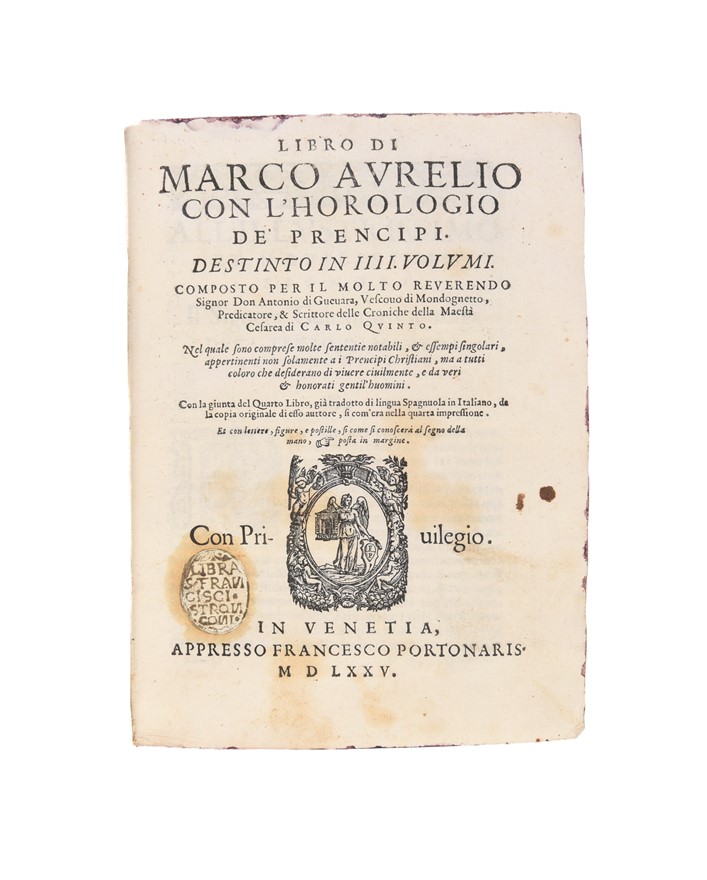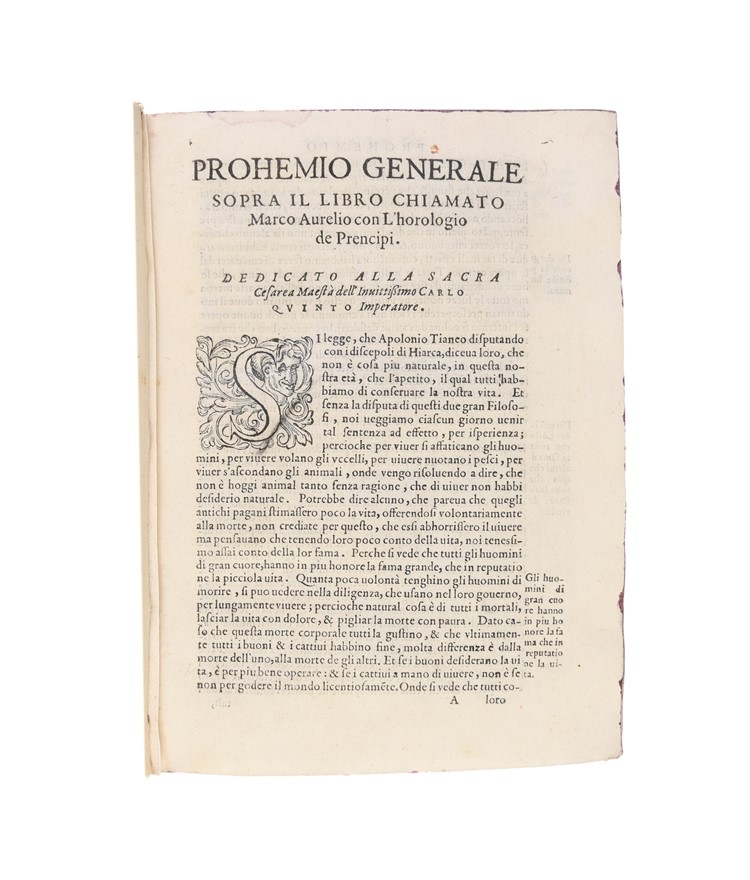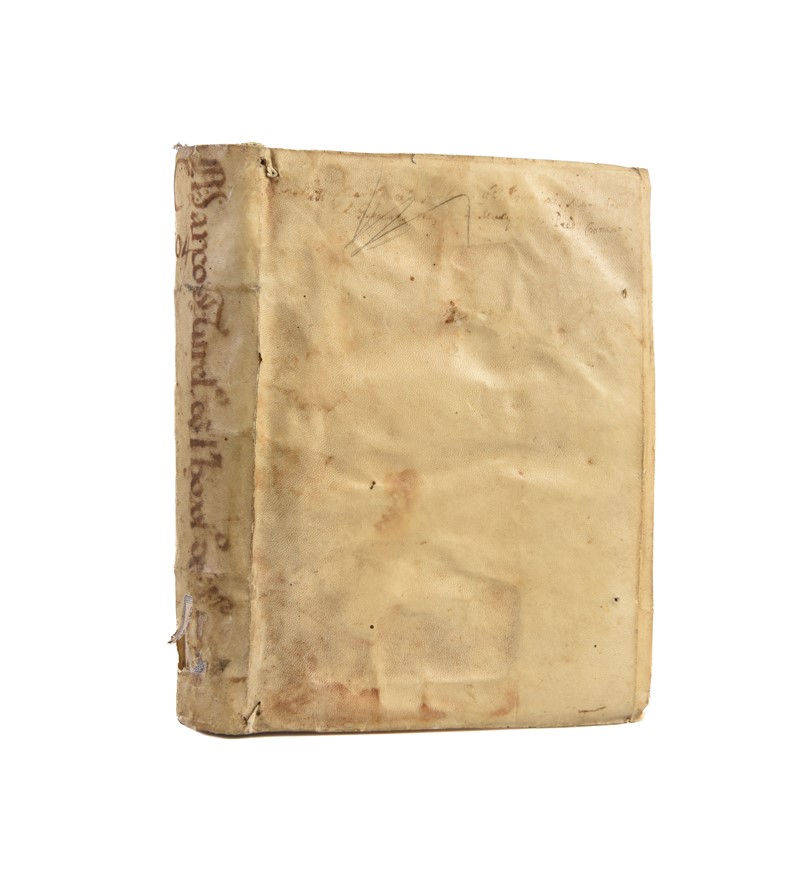Libro di Marco Aurelio con l'horologio de' prencipi
DE GUEVARA Antonio (1575)
£800.00
MARCUS AURELIUS AS A MODEL OF PRINCELY BEHAVIOUR
With Francesco Portonaris' printer's device to title page of each book, large woodcut initials opening text of each book, smaller initials throughout, half-page and smaller medallion woodcuts in text.
4to (208 x 153mm). [24], 88; [4], 96; [4], 112; [4], 59, [1 (blank)]ff. Contemporary limp vellum, yapp edges, title in manuscript on spine, remains of shelf label at foot, purple edges with naive gauffering (holes to lower cover, hole at foot of spine revealing manuscript fragment used as binder's waste, stitching).
Venice: Francesco Portonaris,
An unsophisticated copy, in good condition, of a later Italian edition of Fray Antonio de Guevara's (1480?-1545) extraordinarily popular Relox de Principes, an enlarged version of his (largely fictional) biography of exemplary Roman emperor Marcus Aurelius, the Libro Aureo. First published in Spain in 1528 (Libro Aureo) and 1529 (Relox), both works were immensely popular and quickly translated into Italian, appearing in 1542 and 1543 respectively. According to one estimate, 'from 1542 to 1600, in Italy alone, an edition of the Relox or Libro Aureo was published on average almost every eighteenth months' (Mezzatesta, p.626). The present edition is the third from the press of Francesco Portonari, who also translated the work.
Originally dedicated to Charles V - to whom De Guevara was made court historiographer in 1526, as described on the title page - with these works De Guevara contributed to the rediscovery and rehabilitation of the figure of Emperor Marcus Aurelius that took place during the Renaissance. Using as his basis an essentially 'imaginary biography based largely on Julius Capitolinus' Historia Augusta' (Mezzatesta, p.624), De Guevara presents a didactic treatise on princely quality and behaviour based on the example set by Marcus Aurelius, lauded as the archetypal learned prince and leader of men. The text instructs in the importance of princely piety, marriage, and governance of the state, 'with special emphasis placed on justice and the maintenance of peace' (Mezzatesta, p.625). The additional fourth book here examines how a prince should govern 'at court, and at home', including discussion of alcohol and sobriety.
Along with De Guevara's original dedication to Charles V, the first and fourth books here are dedicated by printer and translator Portonari to Gulielmo Gonzaga, Marchese di Monferrato, and Alfonso da Este, Duke of Ferrara; the second and third are dedicated by Costantino di Franchi to Giulia di Franchi and Agostino di Franchi respectively.
Provenance: 1. With oval book stamp (in woodcut?), pasted to title page of the Convento di San Francesco, Stroncone, still active, and said to have been founded by St Francis himself on a visit there in 1213. Their stamp appears in Biblia Latina (Venice: Octavianus Scotus, 31 May 1480) at the Bodleian (see Bod-Inc B-279).
Ref: M.P. Mezzatesta, 'Marcus Aurelius, Fray Antonio de Guevara, and the Ideal of the Perfect Prince in the Sixteenth Century', The Art Bulletin 66.4 (1984), 620-633.
CNCE: 22269. This Portonari edition not in BMSTC (Italian) or Adams.
Stock Code: 247474






